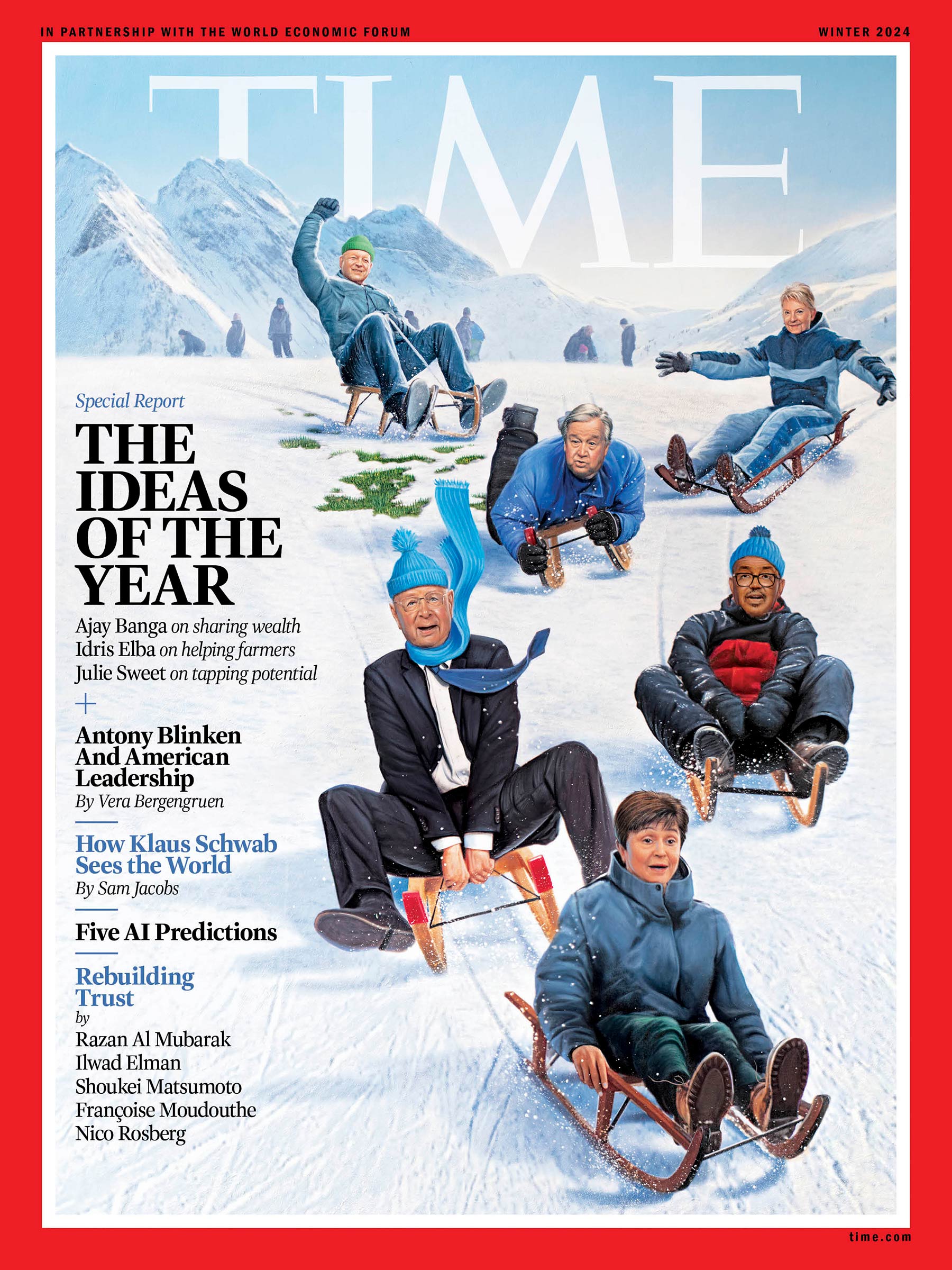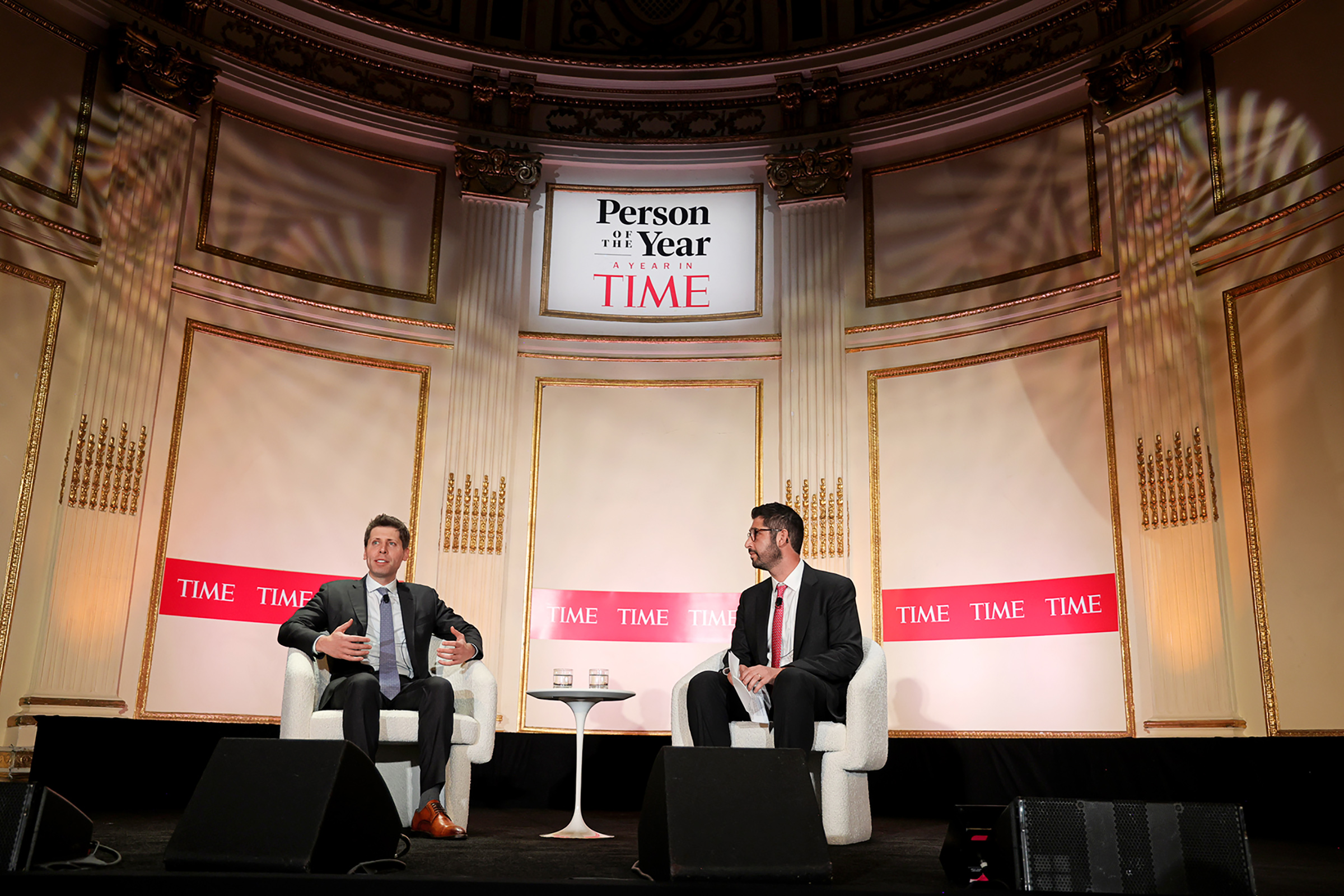Last month, I had the chance to interview Sam Altman, the OpenAI leader whom we named the 2023 CEO of the Year, onstage at our “A Year in TIME” event in New York City. In part thanks to the drama surrounding his removal from—and speedy reappointment to—the top role at the artificial-intelligence company, Altman has emerged as one of the most-watched leaders of a technological revolution that promises (or threatens, depending on your view) to reshape the core features of our society, with the potential to provide long-sought transformations across industries and ways of life.
“I think everybody involved in this, as we get closer and closer to super intelligence, gets more stressed and more anxious,” Altman told me. He was speaking about his own board of directors, but he might as well have been speaking about the world leaders who are gathering in Davos, Switzerland, this month for the annual meeting of the World Economic Forum.
This package represents the sixth collaboration between TIME and the WEF, for whom we are a media partner; the special edition we distribute in Davos is made possible by Sompo. We will meet this year in Davos at a period of significant uncertainty, due in no small part to AI’s arrival. In this issue, experts offer their predictions for what AI will mean for 2024, as part of a collection of coverage we are calling Ideas of the Year, spotlighting people and concepts that could help shape the next 12 months and beyond. Accenture CEO Julie Sweet tells us how she’s advising some of the world’s leading companies to approach AI. TIME100 honoree and actor Idris Elba writes about how supporting small farmers can alleviate hunger and support the climate fight. World Bank President Ajay Banga explains his own mission to marry the fight against poverty with a fight for a sustainable planet. European Parliament President Roberta Metsola describes her vision for a more transparent and democratic government. And other leaders from around the world offer their perspectives on the ideas that will shape 2024.

Buy a print of The Ideas of the Year cover here
With citizens from more than 40 democracies heading to the polls and two major wars being waged, 2024 will be a pivotal time—not least for U.S. leadership. It will put to the test the Biden Administration’s ability to manage a fractious global order while simultaneously campaigning to keep the White House. At the center of this challenge will be U.S. Secretary of State Antony Blinken, whom we also profile in this issue. He is charged with defining what America means to and for the world at a moment of high stress and change.
Moments of change, of course, are also moments of opportunity. In order to get a jump start on the major ideas that will shape the year, I spoke with WEF chair Klaus Schwab, who underlined that truth. At age 85, he has not slowed down in his mission to convene and advise the world’s leading decisionmakers, and this year’s forum will be focused on the question of how best to shore up the trust that keeps our societies running. “We are living in a very unstable world,” Schwab told me. “We have to find new rules.”
We must figure out those rules together. The stakes couldn’t be higher.
- What Student Photojournalists Saw at the Campus Protests
- How Far Trump Would Go
- Why Maternity Care Is Underpaid
- Saving Seconds Is Better Than Hours
- Why Your Breakfast Should Start with a Vegetable
- Welcome to the Golden Age of Ryan Gosling
- The 100 Most Influential People of 2024
- Want Weekly Recs on What to Watch, Read, and More? Sign Up for Worth Your Time
